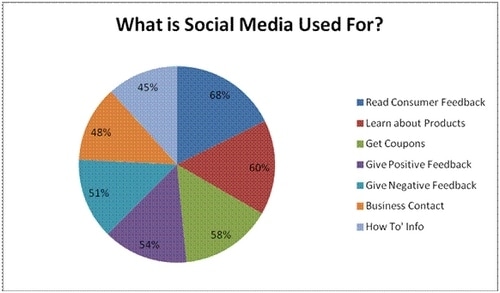The Modern Digital Marketing Funnel

A digital marketing funnel is the foundation of any digital marketing campaign. Marketing funnels are a method that marketers use to convert prospects into customers. It depicts the customer journey from beginning to end. Maximizing leads at the top and minimizing those at the bottom is important.
It’s a step-by, sequential process. In order to convert an audience to leads or customers is carefully mapped. It is not difficult to do, but it does take time and effort.
A digital marketing funnel is a structure that allows you to plan, manage and measure the success of a digital marketing campaign. It generally involves the acquisition of new customers, conversion of those customers to leads, and finally, the conversion of those leads into paying clients.
Four-step process
Marketers use this four-step process to help prospects make informed decisions about their products or services and purchase them. These four steps are Awareness (Interest, Desire, and Action).
All of this is part of traditional marketing. Digital marketing agency can help you now it is an integral part of a business. Digital marketing is a different kind of marketing than traditional.
The digital marketing funnel includes modern marketing methods. Although both goals are similar, the digital funnel covers more modern marketing strategies and steps to online purchasing.
Traditional Marketing Funnel vs. Digital Marketing Funnel
There was no doubt that digital marketing funnels evolved as businesses evolved because of technological advancements. In 2021, the number of internet users will surpass 4.9 billion. This accounts for 63% of the world’s population.
The number of smartphone owners has also increased dramatically. Smartphone users accounted for over 50% of all internet traffic in 2020. Google, YouTube, and Facebook were the most visited sites.
Customers now have easy access to vast information thanks to the above developments. This has resulted in a dramatic change in how people buy products. Modern shopping is an experience that is custom and non-linear.
Modern businesses have many challenges, and the traditional marketing model no longer works. It misses out on crucial opportunities to reach customers at their doorstep. These are the main differences between modern and traditional digital marketing channels.
- Traditional marketing funnels begin with awareness and end with sales. The digital marketing funnel starts with awareness and ends with a return to awareness.
- The traditional marketing funnel is linear. This means they begin at the top, move through each stage and then end at the bottom. The digital marketing funnel loops back and forth between each stage to optimize conversions.
- Traditional marketing funnels are about attracting customers, generating leads, and converting those leads into sales. Retaining customers is then the next step. A digital marketing funnel involves tracking visitors to your site, measuring your effectiveness, and determining the best channels for your business.
- The traditional marketing funnel has four steps: awareness and consideration, decision, purchase, and decision. This article will cover various digital marketing channels, but the “hourglass” digital marketing funnel has up to 10 steps.
- Digital marketing funnels are different from traditional marketing funnels because they include email campaigns and social media platforms to engage potential clients.
What purpose does a digital marketing funnel serve?
Digital marketing funnels have been around for a while and are an integral part of digital marketing strategy.
This model was created to assist marketers in identifying and targeting potential customers more effectively. It divides them into groups based on their engagement with your content.
A digital marketing funnel guides users through a series of steps that eventually lead to action, typically purchasing a product. The funnel helps businesses attract and retain customers.
These funnels are also called conversion funnels. All companies can use them. A funnel is a sequence of steps or clicks a customer normally goes through to purchase a product or service.
A digital marketing funnel aims to bring qualified traffic to the top. Next, engage, inform, and keep them interested with content marketing efforts until they make the purchase.
A digital marketing funnel makes it easy for customers to purchase your product or service. No matter what the company’s size or industry. The ultimate purpose of a digital funnel for marketing is to make money for businesses.
The digital marketing funnel
The digital marketing funnel helps you to understand your target market. Once you have a clear understanding of the many opportunities available to you, you can begin to converse.
This is done by being there and communicating with them on the platforms and times that suit you. It is your opportunity to showcase the brand image you have created and to explain why it is the best option for them.
Knowing your audience will help you create personalized content. A proper digital marketing funnel is a great way to get started. Personalized content is always more attractive.
A good digital marketing funnel can help you map your brand’s customer journey. You can be as precise as you need. It highlights all key points, starting with when customers first encounter the product and when they purchase it.
Businesses can attract and keep customers by following a digital marketing channel.
Different Types of Digital Marketing Funnels
Sometimes marketing campaigns fail to deliver the results that businesses expect, even if they invest in paid social media campaigns. How can this be prevented?
Spending on paid advertising or any other type of marketing can not be enough to generate good returns for a business. Marketing efforts must be built on solid foundations.
Adopting a digital marketing channel can help your company grow and achieve its goals. You can make a positive difference and reap many benefits from it, such as:
- The target audience in mind when you market content
- Understanding your target audience and their motivations to look for and buy your product
- Understanding which strategies work best at what stage and why
- How to nurture and build customer relationships
All of this points to one thing. A well-researched marketing funnel and insight into the buyer’s journey can help you create a highly effective marketing strategy. Market your brand this way rather than making assumptions about your audience.
Digital marketing is not a linear process. From a business perspective, the journey shoppers take to become potential or existing customers will differ for each person.
The digital marketing funnel doesn’t have a set structure, and there are many types. This article will discuss three types of digital marketing channels that are most popular and used by businesses. These are shown in the graphic below.
Hourglass Digital Marketing Funnel
This digital marketing funnel requires a complete view of the customer journey. This journey is all about building and maintaining customer relationships.
Below are details about the pre-and post-purchase phases of this marketing funnel.
- Building brand awareness is the first step in engagement. This is the first step.
- Education is about finding the problem.
- To find the answer, you must research.
- The solution is found by evaluating the product or service.
- Justification is required to validate the purchase of the product.
- The purchase stage is where the product gets purchased.
Looping Digital Marketing Funnel
This digital marketing funnel has six stages but is not as well-structured as the hourglass funnel. It’s also flexible. These are the six stages.
- Recognize the problem
- The goal of consideration is to find the solution
- The research and discovery loop is where customers gather information to solve their problems.
- Purchase
- The customer experience after purchase is what we are focusing on so that they return again and again.
- Loyalty Loop is where customers form a relationship with your brand if they have a positive experience.
Micro-moments Digital Marketing Funnel
It’s a marketing funnel that Google developed based on micro-moments. It emphasizes the factors that encourage users to use the funnel. The micro-moments of the digital marketing funnel are four in number, as shown in the graphic.
SEO strategies for top-of-funnel clients
SEO is an amazing tool for increasing business visibility. It allows you to reach customers naturally. You can also use the user search terms to determine the stage of your customer journey.
A potential customer may be looking for general information. This means that they need the right information at just the right moment.
A blog post or guide is a great way to get your customers interested in your business. Your business can build a brand from the SEO agency . Your business can be a trusted resource during the initial buying phase.
Content marketing strategies for top-of-funnel clients
Modern businesses need to be content marketing. 70% of people would rather have a blog than an advertisement about a company.
Users are attracted to businesses offering custom content. This could be infographics, blog posts, or even infographics on relevant topics. SEO Optimizing content is a great idea.
Search results will show you more SEO-rich content. The first page of search results has the highest chance of being found. If your business appears on the second search result page, it will have very limited visibility and website traffic.
Top-of-funnel customer – Social media marketing strategies
Social media sites are some of the most popular sites around the globe. Facebook advertising can help you reach top-of-the-funnel users. Building brand awareness is now quite common on social media platforms.
To familiarize your target audience with your brand, find their preferred social media platforms and show them how it meets their expectations. Influencer Marketing is another way to promote your brand.
It will enable you to easily contact top-of-the-funnel prospects. Influencers can be trust, and that can help your brand make a good first impression.
Video marketing strategies for top-of-funnel customers
Videos are very effective and widely consumed content. Videos can be posted about products, related information, and promotional videos.
A study has shown that just one video can increase brand recognition. A video can also increase the likelihood that you will buy it after viewing it.
PPC strategies to reach bottom-of-the-funnel customers
Companies can attract buyers with pay-per-click advertising. It also covers micro-moment customers who are ready to buy. PPC can help customers reach out to those who have already researched the products they are interested in.
Email marketing for bottom-of-the-funnel customers
Email marketing is an extremely reliable strategy for those at the bottom of the funnel. Email marketing is more effective than other lead generation methods in generating sales.
Segmenting your audience is another important tactic. You can segment your audience based on whether customers are ready to order or have abandoned their shopping carts. Then you can send them emailers accordingly.
SEO strategies to help customers at the bottom of the funnel
Using SEO for users at the bottom of the funnel can be beneficial by focusing only on actionable words. For example, the word “buy” can indicate intent to buy. It is important to note that SEO that focuses on the bottom end of the buying funnel can be very competitive.
Conclusion:
The marketing funnel is an effective way to describe the process of acquiring a customer. This process starts with awareness, moves through interest and ends with action. Your marketing funnel may look a little different depending on your business, but the basic steps are similar for all types of businesses. At the top of the funnel you have your awareness. This is where a customer first hears about your business. You’ll have to work hard to get your potential customers’ attention here.





